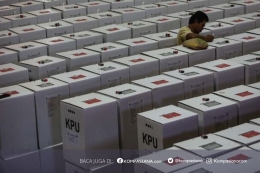Widjaja et al. (2021) advocate for tailored HR policies that address the unique needs of sectors such as tourism and MSMEs, emphasizing localized strategies to meet international benchmarks (Widjaja et al., 2021). These studies collectively suggest that multi-sectoral collaboration and strategic policy alignment are critical to transforming Jakarta's HR capabilities for global competitiveness
1.4 SIGNIFICANCE
Contribution To Jakarta's Vision Of Becoming A Global City.
Jakarta's pursuit of global city status has garnered significant scholarly attention, highlighting its unique challenges and opportunities. Shatkin (2022) emphasizes the role of financial sector actors in rescaling Jakarta's urban regions, demonstrating how elite stakeholders contribute to land development and strategic investments aligned with global city aspirations (Shatkin, 2022). Similarly, Rustiadi et al. (2021) focus on the impact of urban expansion on transportation and infrastructure development, emphasizing their critical role in supporting Jakarta's metropolitan vision (Rustiadi et al., 2021).
Wade (2019) underscores the importance of hyper-planning initiatives, such as the Great Garuda project, which aim to position Jakarta as a global spectacle through urban transformation and public works contributions (Wade, 2019). Indraprahasta and Derudder (2018) examine the dynamics of global-local interactions, illustrating how Jakarta's metropolitan development aligns with broader global city-region trends (Indraprahasta & Derudder, 2018).
Pravitasari and Saizen (2015) provide insights into local spatial drivers of urban expansion in Greater Jakarta, stressing the interplay between regional integration and global positioning (Pravitasari & Saizen, 2015). These contributions underscore the multifaceted efforts required to achieve Jakarta's vision as a global city, from infrastructure investments to governance reforms and regional integration.
Framework For HR Quality Enhancement As A Replicable Model For Other Cities
Developing a robust framework for human resource (HR) quality enhancement has significant implications for global urban competitiveness and serves as a replicable model for other cities. Wolniak et al. (2024) emphasize the integration of smart city concepts into HR frameworks, advocating for infrastructure and technology that improve workforce efficiency while addressing urban sustainability goals (Wolniak et al., 2024). Similarly, Bellini et al. (2022) propose an Internet of Things (IoT)-enabled approach that allows for seamless data-driven HR processes, reducing operational inefficiencies and promoting scalable models for city-wide workforce management (Bellini et al., 2022).
Khodeir and Nabawy (2021) highlight the importance of responsive HR strategies in large-scale urban projects, presenting a framework that aligns workforce capabilities with mega-development needs (Khodeir & Nabawy, 2021). Meanwhile, Kumar et al. (2020) introduce the Smart City Transformation Framework (SCTF), which underscores HR as a critical driver of sustainable urban innovation and transformation (Kumar et al., 2020).
These frameworks collectively offer insights into designing HR enhancement models that cities can adapt to address their unique challenges, thereby fostering a globally competitive and resilient
2. LITERATURE REVIEW







